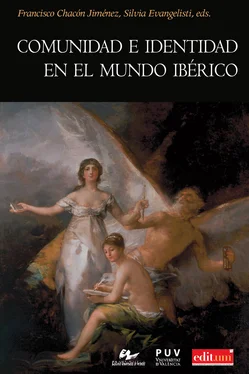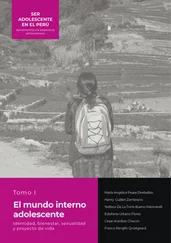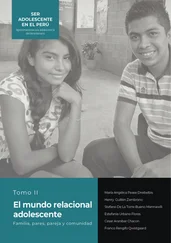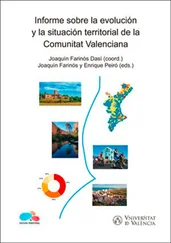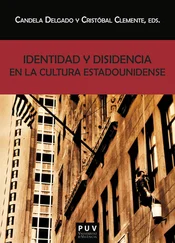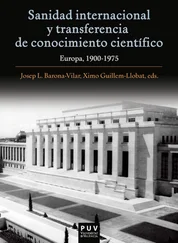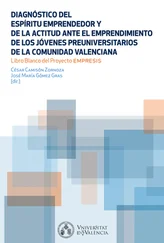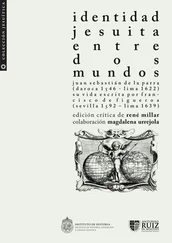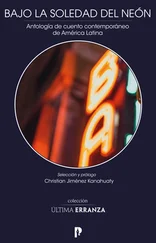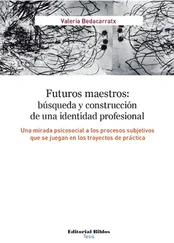AAVV - Comunidad e identidad en el mundo ibérico
Здесь есть возможность читать онлайн «AAVV - Comunidad e identidad en el mundo ibérico» — ознакомительный отрывок электронной книги совершенно бесплатно, а после прочтения отрывка купить полную версию. В некоторых случаях можно слушать аудио, скачать через торрент в формате fb2 и присутствует краткое содержание. Жанр: unrecognised, на испанском языке. Описание произведения, (предисловие) а так же отзывы посетителей доступны на портале библиотеки ЛибКат.
- Название:Comunidad e identidad en el mundo ibérico
- Автор:
- Жанр:
- Год:неизвестен
- ISBN:нет данных
- Рейтинг книги:4 / 5. Голосов: 1
-
Избранное:Добавить в избранное
- Отзывы:
-
Ваша оценка:
- 80
- 1
- 2
- 3
- 4
- 5
Comunidad e identidad en el mundo ibérico: краткое содержание, описание и аннотация
Предлагаем к чтению аннотацию, описание, краткое содержание или предисловие (зависит от того, что написал сам автор книги «Comunidad e identidad en el mundo ibérico»). Если вы не нашли необходимую информацию о книге — напишите в комментариях, мы постараемся отыскать её.
Comunidad e identidad en el mundo ibérico — читать онлайн ознакомительный отрывок
Ниже представлен текст книги, разбитый по страницам. Система сохранения места последней прочитанной страницы, позволяет с удобством читать онлайн бесплатно книгу «Comunidad e identidad en el mundo ibérico», без необходимости каждый раз заново искать на чём Вы остановились. Поставьте закладку, и сможете в любой момент перейти на страницу, на которой закончили чтение.
Интервал:
Закладка:
Permítanme que mencione, antes de concluir, a Josyane y a los nietos de Jim Casey, esa otra familia imprescindible para el desarrollo de la vida, y que en nombre de Silvia Evangelisti, en el mío propio y en el de Jim Casey, muchas gracias.
FRANCISCO CHACÓN JIMÉNEZ
Universidad de Murcia
FOREWORD
Respected authorities, dear colleagues, dear Josyane and Jim, ladies and gentlemen. I’d like to start by apologizing for my poor English pronunciation, but I very much wanted my first words/ to be in English as a tribute to our guest of honour and although our conversations about the history of Spain have always taken place in Spanish, and at times in French, please let me deliver these opening words and welcome message language.
The University of Murcia, together with the University of East Anglia, have organized this gathering of colleagues and friends, who are also deep admirers of professor Casey’s personality and professional work. The occasion is to celebrate his retirement, but this is just a pretext for all of us to engage in academic debates of historiographic proposals, to explore problems and new perspectives in social and political history, and, ultimately, to engage in the necessary reflection on current, crucial issues of debate in history. And we intend to do this with the required depth, relevance, and notoriety, and also from various historiographic angles, perspectives, and positions. This will guarantee diversity and enrichment.
Therefore, we will not just be paying a tribute to a retiring colleague in the traditional way. Rather, «Community and Identity in the Iberian World» is our object of study and our collective meeting space. Our academic programme will revolve around it. It will be a varied and complex academic programme to which English, Spanish, French, Italian and Northamerican historians shall contribute. Ultimately, we shall be dealing with diverse themes of debate, global approaches, social spaces, and family universes.
Yet, the most outstanding outcome will hopefully be that this academic gathering of historians around a Hispanist will allow historiagraphy to transcend its national spaces and integrate itself in transnational territories within a comparative perspective.
Our working programme is guided by the beautiful allegory by Goya: «la verdad, el tiempo y la historia o la alegoría de la Constitución de Cádiz de 1812», which reflects the fleeting nature of time versus the necessary strength and permanence of written history. In a similar way, its historical development has situated Hispanist historiography undertaken in various countries in a space that transcends the theoretical context of the nation state. I’d like to stress that this does not mean that the study of national histories should not be undertaken by authors from other countries. Rather to the contrary, this is always an enriching analysis. However, historiography, Hispanism, and a tribute to an academic have brought us together in a context and an environment that, in my view, goes beyond the traditional and classic Hispanism, and places it, first, in the object of study previously mentioned and, second, in a new perspective and a new view: This is a synthesis between, on the one hand, the history of Spain as seen by Spanish scholars and Hispanists, and, on the other hand, an attempt to go beyond the nation state as the inspiring factor.
Ultimately, it would be a question of overcoming themes of debate enclosed within national spaces, in order to open them to those changes that relations and exchanges have gradually produced. We will attempt to write a new history of Europe that can overcome the mere addition of nations. Furthermore, we will attempt to explore social processes that transcend the boundaries of historical periods and current frontiers. The comparative perspective to be adopted will allow us to discern the similarities, differences, and defining characteristics of such social processes. So, our reflections and debates are intended as a tribute to someone who has so much contributed to rethinking existing topics, to advance new angles for the analysis of diverse themes, including, «moriscos», the emergence of the community and social relations, and, very especially, the family and its social relations, a strand of research in which his contribution has been outstanding throughout his long and productive academic career.
I would like to finish by expressing my gratitude to the University of Murcia, to the Spanish Foundation of Modern History and to the University of East Anglia for their support in putting this whole event together. I would also like to thank you all for your personal and intellectual contributions.
And before I conclude, let me mention Josyane, and Jim Casey’s grandchildren, members of that other family, so crucial for the development of life.
On behalf of Silvia Evangelisti, Jim Casey, thank you very much.
FRANCISCO CHACÓN JIMÉNEZ
Universidad de Murcia
INTRODUCCIÓN
La idea que dio origen a la necesidad de rendir homenaje a James Casey y, por tanto, al libro que el lector tiene en sus manos, nació espontáneamente alrededor de una mesa de restaurante («Las Cadenas», en referencia a las cadenas que rodean la capilla funeraria del I Marqués de los Vélez, D. Juan Fajardo Chacón, en la catedral de Murcia) en un soleado día de la primavera murciana del año 2009. Seguramente no podía ser de otra manera en el caso de este hispanista dedicado, preferentemente, a la historia social y cuyas experiencias vitales e historiográficas han transcurrido en tierras del Mediterráneo occidental hispánico.
En este sentido, en un coloquio celebrado a finales de los años setenta, el profesor Pierre Ponsot, aludía al profesor Carlos Martinez Shaw como el historiador que tenía un pie en Barcelona y otro en Sevilla; símil que podría aplicarse igualmente a James Casey aunque cambiando los lugares del escenario: Valencia y Granada; pero en cualquier caso, se trata también de las dos coronas de la Monarquía Hispánica en suelo ibérico. Sin embargo, J. Casey, en los últimos años ha ampliado su presencia historiográfica completando el espacio mediterráneo con el territorio por el que Castilla se asomaba a dicho mar: el Reino de Murcia; y aunque no ha llevado a cabo investigaciones directas sobre el mismo, sí que ha participado en actividades docentes, acciones integradas y asistencia y presencia en tesis doctorales.
Silvia Evangelisti era ponente en el Seminario Familia y élite de poder (2009), que desde el curso 1982-83 se viene celebrando todos los años en la Universidad de Murcia y comensal en la reunión citada en las primeras líneas de este texto; que, precisamente, tuvo a Jim Casey como uno de los participantes que inauguraron dicho seminario.
Y la idea encontró inmediatamente sus realizadores, no sólo quienes aceptaron participar en dicho homenaje, sino también en la colaboración editorial de las universidades de Valencia, Granada y Murcia. El proyecto de celebrar la carrera universitaria de Jim no necesita ninguna justificación y encontró apoyo favorable en todos los convocados (que podían haber sido también, y seguro que la mayoría hubiesen aceptado, otros muchos, pero se imponía, por razones obvias, la limitación a sus ámbitos y espacios territoriales y temáticos preferentes), lo que permitió celebrar el 1 de julio de 2010 en la University of East Anglia (School of History) el simposio: Community and Identity in the Iberian World . One day Symposium in Honour of Jim Casey , donde ha transcurrido casi toda la vida profesional de Jim Casey. No nos encontramos sólo ante un hispanista, aunque haya dedicado su vida a investigar, comprender, interpretar y difundir el pasado de la Monarquía Hispánica. Pero la figura del hispanista, en este caso, no basta; y como afirma J. Elliott: «la figura del hispanista debería quedar siempre en segundo lugar respecto al historiador. Pero afortunado el historiador cuyo país de elección tiene tanto que ofrecer». 1 En realidad, la integración y la simbiosis del historiador norirlandés ha sido tan plena y completa que se asemeja a una segunda piel o prenda de vestir; y, además, con la perspectiva positiva de quien revisa y estudia el pasado de un país y un territorio sin condicionamientos previos de origen y con una capacidad de observación, por tanto, más aguda y profunda. 2
Читать дальшеИнтервал:
Закладка:
Похожие книги на «Comunidad e identidad en el mundo ibérico»
Представляем Вашему вниманию похожие книги на «Comunidad e identidad en el mundo ibérico» списком для выбора. Мы отобрали схожую по названию и смыслу литературу в надежде предоставить читателям больше вариантов отыскать новые, интересные, ещё непрочитанные произведения.
Обсуждение, отзывы о книге «Comunidad e identidad en el mundo ibérico» и просто собственные мнения читателей. Оставьте ваши комментарии, напишите, что Вы думаете о произведении, его смысле или главных героях. Укажите что конкретно понравилось, а что нет, и почему Вы так считаете.
